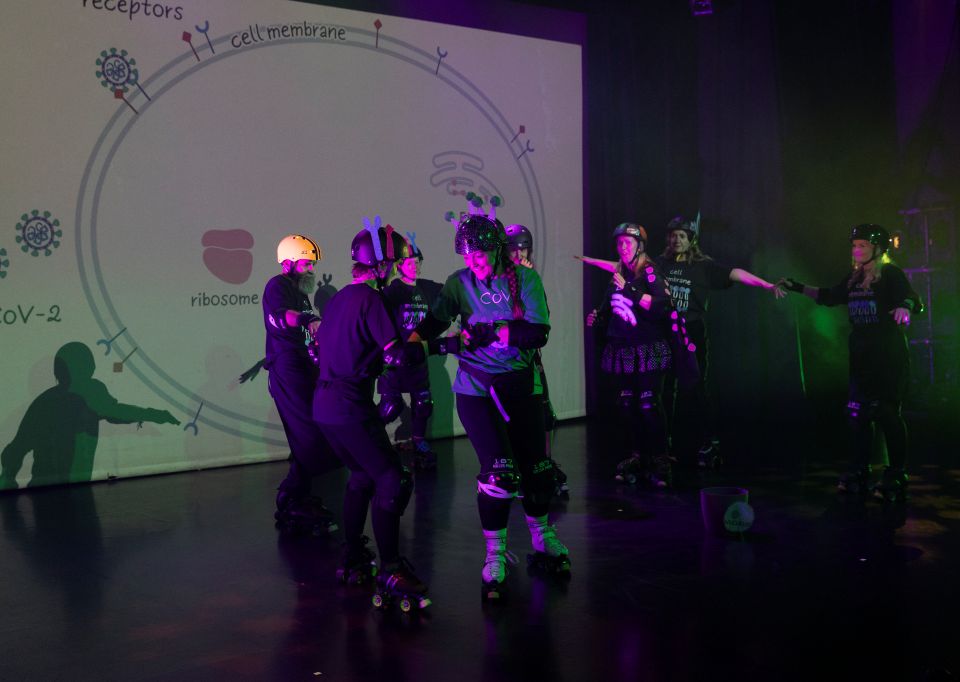
What makes a big night out buzz? In a city that is world-famous for its great party atmosphere, audiences at this year’s British Science Festival got the chance to find out, thanks to University of Liverpool researchers from the Department of Pharmacology and Therapeutics.
A range of fascinating events aligned with the Infection Resilience research frontier took place at the British Science Festival in Liverpool last month.
Antiviral Roller Skating, Plants and Pandemics, What the Phage?, and Welcome to Microbe City offered imaginative, accessible explorations of how microbes, viruses, and host systems interact, and how communities might build resilience to infectious threats.
The events were a mix of interactive exhibits, short talks, performance-science, and immersive demonstrations. One session, Antiviral Roller Skating, used a playful metaphor of skating pathways to illustrate how antiviral drugs fight coronavirus infection.
Plants and Pandemics brought in botanical and ecological perspectives on host–microbe interactions, while What the Phage? focused on bacteriophages, the viruses that infect bacteria, as potential allies in controlling infection.
Welcome to Microbe City served as a “microbial metropolis” exhibit, showing how microbial communities coexist, compete, and evolve in environments from soil to the human body.
Speakers spanned across various disciplines, from microbiologists, ecologists and virologists to science outreach communicators. Researchers from the University of Liverpool were well represented, helping anchor the event in regional scientific strengths. Schools, families, students, and public participants attended, engaging in guided tours, hands-on models, and live Q&A.
Dr I'ah Donovan-Banfield, Biochemistry, Cell and Systems Biology, Institute of Systems, Molecular & Integrative Biology one of the lead organisers, reflected:
“Our aim was to invite audiences into the hidden world of viruses, and to illuminate them as dynamic subverters of our cellular machinery. We wanted the audience to understand the many ways we can design drugs against viruses, and the policy work that needs to accompany this research to ensure at-risk communities get access to these life-saving drugs.”
Discover the Infection Resilience research frontier